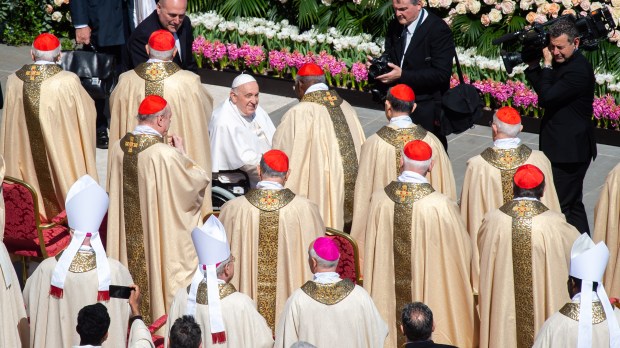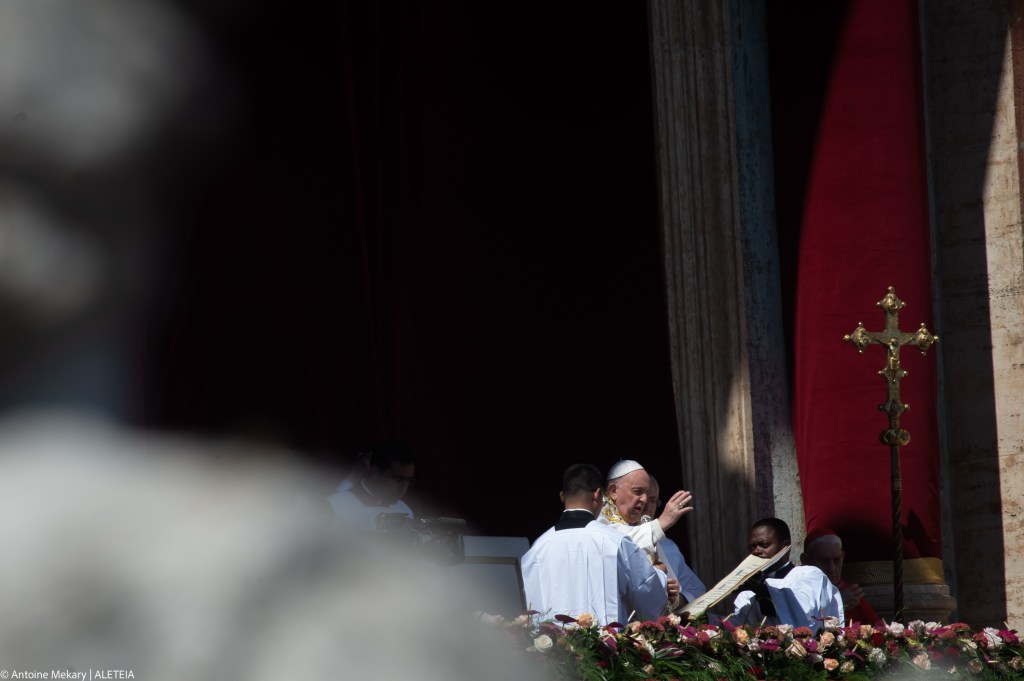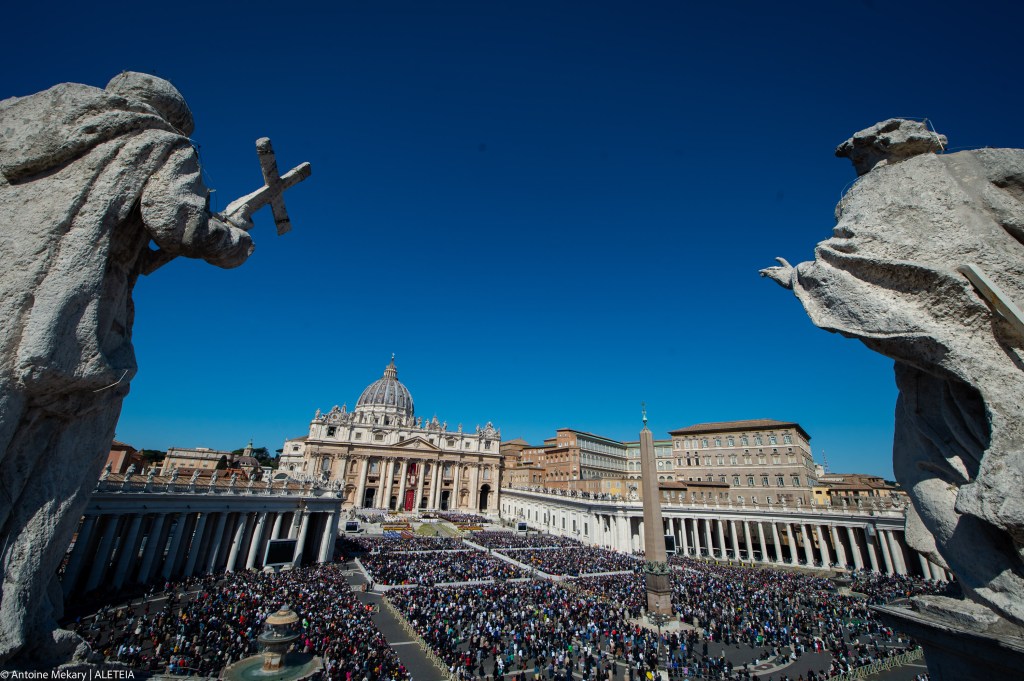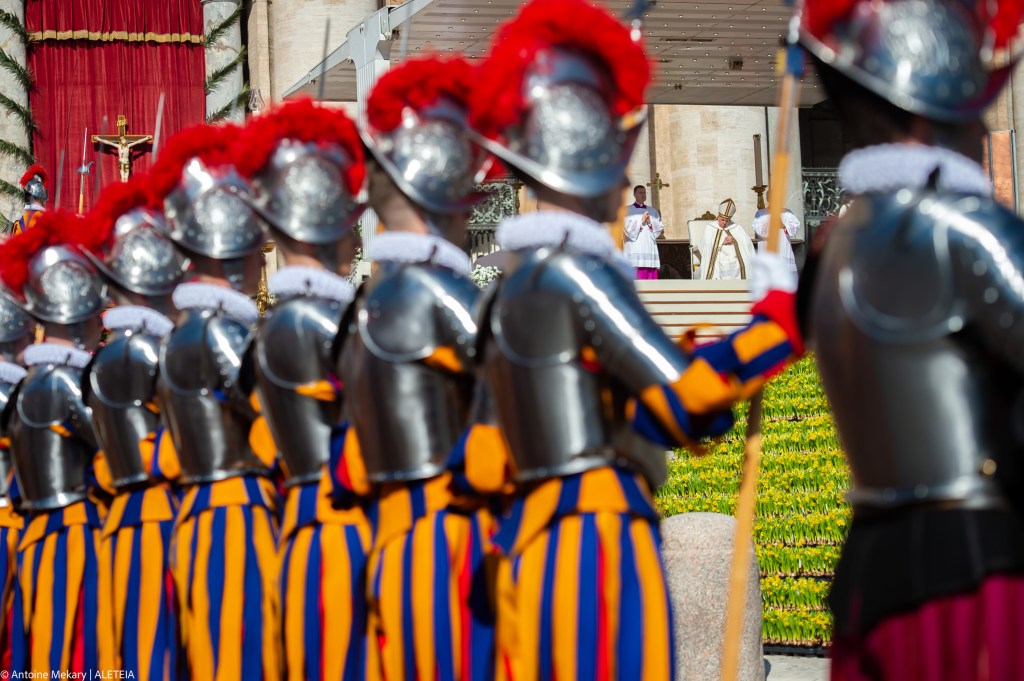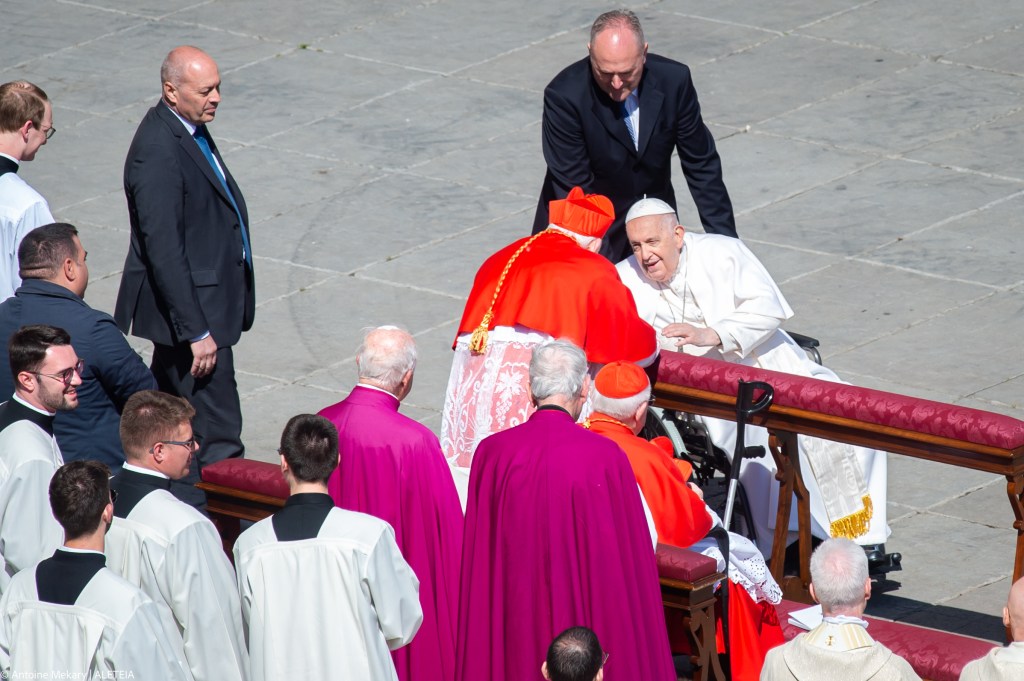Pope Francis made a heartfelt plea for an end to conflicts around the world, urging the international community in particular to take action for Ukraine, for Jerusalem, and for Haiti, during the traditional “Urbi et Orbi” blessing that he gave on Easter Sunday, April 9, 2023.
Shortly after the Mass he celebrated in the sunshine on a flower-filled St. Peter’s Square, and which ended with a long ride in the popemobile through the crowd, the Pope appeared in the central loggia of the Basilica, to address the 100,000 faithful present in the Square.
After the performance of hymns by military bands from the Vatican and Italy, the Pontiff wished that this Easter feast would be, for the poor, the sick, the elderly and “for those who are going through moments of trial and difficulty,” a passage “from fear to confidence, […] from tribulation to consolation.”
He hailed Easter as “the most important and beautiful day in history” because “the destiny of the world has changed.”
“We are not alone,” and “hope is not an illusion, it is truth!” said the head of the Catholic Church, who delivered his speech seated.
The Pontiff urged humanity to “grow on a path of mutual trust […] between individuals, between peoples and nations,” and to “overcome conflicts and divisions and open our hearts to those most in need.”
As he does every year, he made a plea for all areas of the world suffering from conflict, starting with the Russian-Ukrainian conflict, more than a year after the Russian invasion began.
“Help the beloved Ukrainian people on their way to peace, and spread Easter light on the Russian people,” the Pope prayed. He called for the comfort of “the wounded and those who have lost loved ones because of the war” and for the return of prisoners to their families. Finally, he hoped that the international community “will work to put an end to this war.”
To all the world
The pope extended his appeal to “all the conflicts that bloody the world,” naming “Syria, which still awaits peace.”
He also remembered the victims of the earthquake in Turkey and Syria, asking that they receive “the comfort of God and the help of the family of nations.”
Turning to the city of Jerusalem, the Bishop of Rome expressed his “deep concern” for the “attacks of recent days that threaten the desired climate of trust and mutual respect necessary to resume dialogue between Israelis and Palestinians, so that peace may reign in the Holy City and in the entire region.”
“Help, Lord, Lebanon, which is still searching for stability and unity, so that it may overcome divisions and all citizens work together for the common good of the country,” the Pope continued.
He also spoke of “the dear people of Tunisia, especially the young and those who suffer because of social and economic problems, so that they do not lose hope and collaborate to build a future of peace and brotherhood.”
Concerned about the “grave socio-political and humanitarian crisis” in Haiti, the Pontiff encouraged “the commitment of political leaders and the international community in the search for a definitive solution to the many problems that afflict this troubled population.”
Regarding Africa, where he visited last February, the 266th Pope prayed for the strengthening of the “peace and reconciliation processes in Ethiopia and South Sudan,” and for an end to “the violence in the Democratic Republic of Congo.”
On the African and American continents, the 86-year-old Pontiff expressed concern for “Christian communities celebrating Easter today in special circumstances, such as in Nicaragua and Eritrea,” and for “those who are prevented from freely and publicly professing their faith.” This message comes after a bishop was recently condemned in Nicaragua by the regime of Daniel Ortega.
“Bring comfort to the victims of international terrorism, especially in Burkina Faso, Mali, Mozambique and Nigeria,” he added, before praying for peace in Burma, so that God may “enlighten the hearts of those responsible so that the murdered Rohingya may find justice.
Appeal to the leaders of nations
Finally, Pope Francis asked God to comfort “refugees, deportees, political prisoners and migrants, especially the most vulnerable, as well as all those who suffer from hunger, poverty and the harmful effects of drug trafficking, human trafficking and all forms of slavery.”
To the leaders of nations, he pleaded for “full respect for human rights and democracy” and “that only the common good of citizens be sought.”
The Successor of Peter concluded by saying three times: “Peace be with you!”
The 86-year-old Pope, who was hospitalized for three days last week, celebrated all the services of Holy Week, except for the Stations of the Cross at the Colosseum on Friday evening, due to the cold.
Tomorrow, Easter Monday, the Argentine Pontiff will recite the Regina Caeli prayer at noon from the window of the Apostolic Palace.
